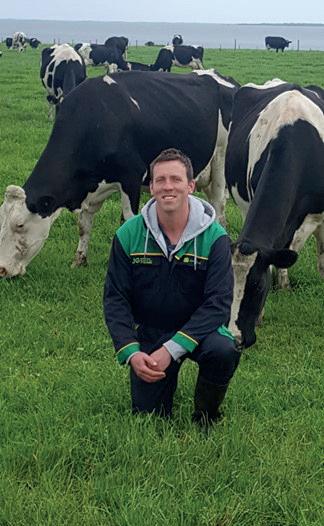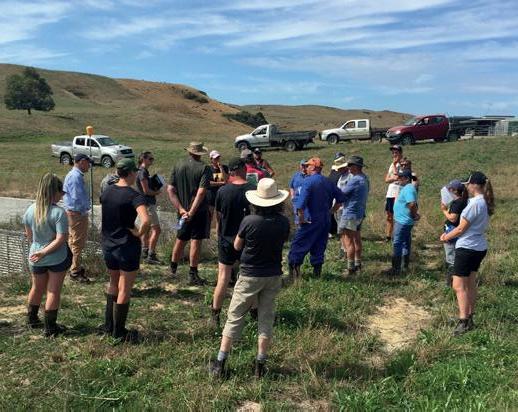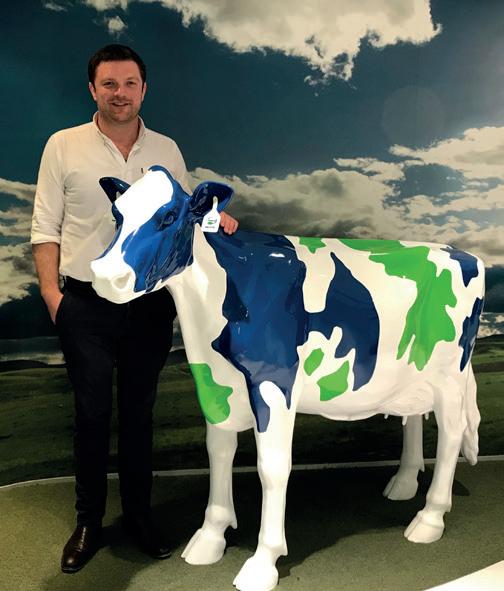
4 minute read
DUNCAN WILLIAMS: Dairy Antibiotics: Achieving Sustainable Use
DAIRY ANTIBIOTICS: ACHIEVING SUSTAINABLE USE
THE RICHARD LAWES FOUNDATION & THE DARTINGTON CATTLE BREEDERS TRUST
Advertisement
DUNCAN WILLIAMS
Duwilliams44@gmail.com
This report is the result of over eight weeks of international travel, covering seven countries over three continents. Numerous farmers, researchers, vets and industry folk gave up their time, lending both their experience and opinions. I argue that the issues around antibiotic resistance do not start and finish on the farm. Instead, they extend throughout the entire food and farming industry, right up to national governance. Antimicrobial resistance is a growing and urgent threat across the entire world. The UK was centre stage in antibiotic history; from their discovery and increased use through to the early warnings regarding misuse, and subsequent regulation. We must act now to ensure that we are part of the solution and minimise any future harm. I begin by discussing how the science around this subject will never be perfect; we do not know all of the specific, farm-level risk factors for high resistance. This knowledge gap should not deter us; the impacts of resistance are so significant. If farming might contribute, we must do all we can to fix it. I bring in examples of how farmers around the world have already transformed their businesses to decrease antibiotic use. The tools for change lie with farmers; they must reduce disease levels, improve animal welfare, while also reducing their reliance on antibiotics. However, farmers do not exist in isolation. Their antibiotic use will often be a response to the economics in which their farm operates. Tightening margins can lead to higher antibiotic use. Farmers looking to decrease their risk of disease may be more likely to treat animals ‘just in case’. I argue that to create better animal health outcomes, we must re-assess how we shape our industry. We must take sensible risk-reducing precautions and design targeted interventions for businesses underperforming. We must bring farmers into the policy creation process and be more willing to share data; farmers and corporates must contribute to local and national schemes wherever possible. Finally, I contend that to encourage low farm antibiotic use, farms must sit within an aligned policy framework. These policies must cover everything from health to trade. Antibiotics shape the history, economics and politics of farming. We must harmonise our high-health, low-antibiotic goals through the entirety of the industry, or economics will be pulling us in differing directions. As agriculture transforms over the coming years, it is the whole industry’s responsibility to shape it.
Proud to continue sponsoring the DCBT pursues its charity objectives through:Proud to continue sponsoring the “Dartington Cattle Breeding Trust Award” Proud to continue sponsoring the “Dartington Cattle Breeding Trust Award” DCBT pursues its charity objectives through:
• Sponsoring research into cattle breeding and animal health“Dartington Cattle Breeding Trust Award” • Sponsoring research into cattle breeding and • Providing educational bursaries to students from Devon, Cornwall and Somerset, animal health • Providing educational bursaries to students studying agriculture and related courses, with preference given to first degree level from Devon, Cornwall and Somerset, studying agriculture and related courses, with students preference given to first degree level students • Providing travel scholarships through the Devon Federation of Young Farmers Clubs• Providing travel scholarships through the Devon Federation of Young Farmers Clubs • Making capital grant awards to new entrants into livestock farming in Devon & • Making capital grant awards to new entrants DCBT pursues its charity objectives through: • Sponsoring research into cattle breeding and animal health DCBT pursues its charity objectives through: • Sponsoring research into cattle breeding and animal health Cornwall, to help them develop their enterprisesinto livestock farming in Devon & Cornwall, to help them develop their enterprises • Providing educational bursaries to students from Devon, Cornwall and Somerset, • Providing educational bursaries to students from Devon, Cornwall and Somerset, • Supporting the essential knowledge transfer of the “Farm to Fork” concept to • Supporting the essential knowledge transfer studying agriculture and related courses, with preference given to first degree level studying agriculture and related courses, with preference given to first degree level of the “Farm to Fork” concept to school • students Providing travel scholarships through the Devon Federation of Young Farmers Clubs school children in Devon and Cornwall • students Providing travel scholarships through the Devon Federation of Young Farmer children in Devon and Cornwall s Clubs • Making capital grant awards to new entrants into livestock farming in Devon & • Making capital grant awards to new entrants into livestock farming in Devon &
Cornwall, to help them develop their enterprises Cornwall, to help them develop their enterprises
Supporting the essential knowledge transfer of the “Farm to Fork” concept to school children in Devon and Cornwall www.dcbt.co.uk • Supporting the essential knowledge transfer of the “Farm to Fork” school children in Devon and Cornwall dartingtoncbt@gmail.com concept to
www.dcbt.co.uk dartingtoncbt@gmail.com www.dcbt.co.uk dartingtoncbt@gmail.com
The Richard Lawes Foundation
The Richard Lawes Foundation was created as a result of the success of the businesses of Volac and Pritchitt Foods The innovation of these companies generated profits by identifying undervalued raw materials and converting them into valuable end products using food science. The Foundation’s trustees would like to support Nuffield scholars on a general basis. We would be particularly interested in scholars who would like to work on a project which involves some of the following characteristics: Market / consumer facing interest
Technical innovation Food and health Future sustainability Crop technology Entrepreneurship Trustees have backgrounds in crop science, food processing, retail and food service marketing and general business management. We would be keen to help scholars develop their skills in any of these areas. The Richard Lawes Foundation is delighted to support Mark Dewes.






